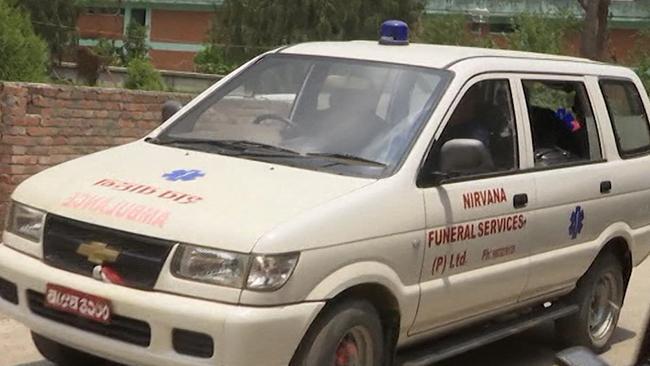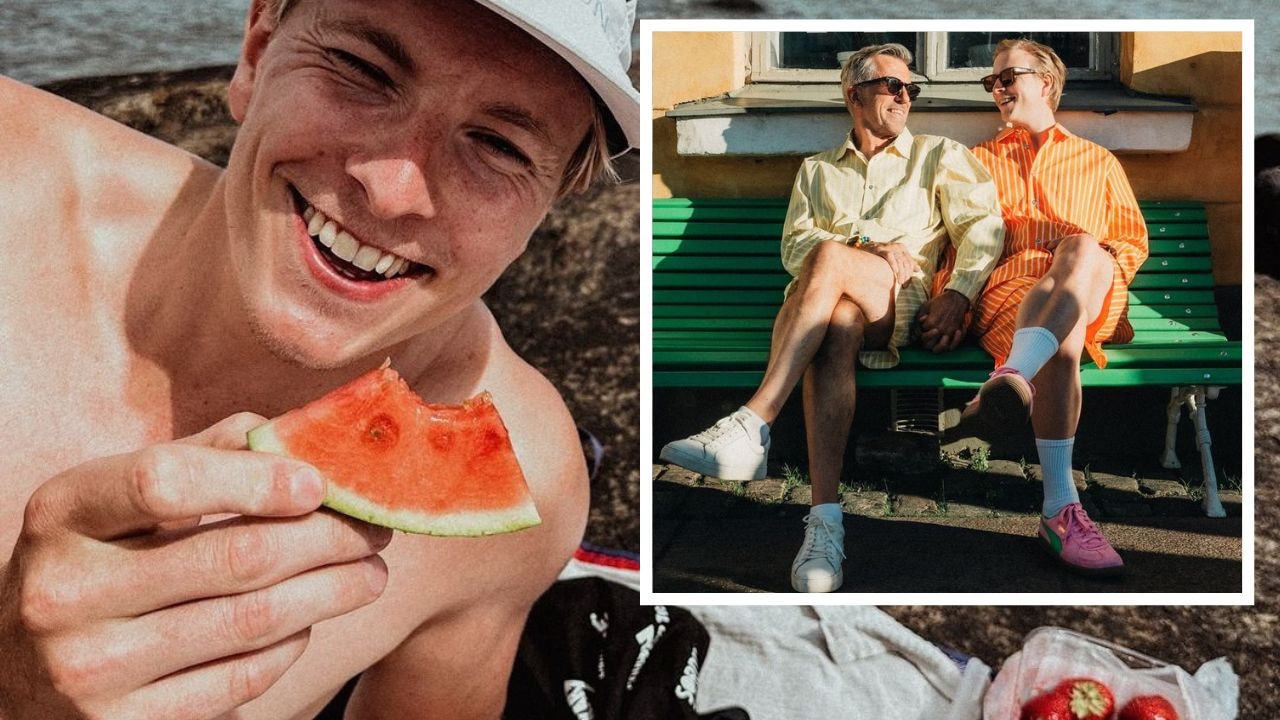Everest heartache as climber reveals how his wife died in his arms
THEY loved climbing, and knew the risk. But nothing could prepare Rob Gropel to hold his wife’s hand as the mountain took her.
TV
Don't miss out on the headlines from TV. Followed categories will be added to My News.
ROB Gropel is a broken man.
A mountaineer, climbing a mountain of grief far more formidable than any physical peak he has ever tackled.
And he’s scaling it without his sidekick — beloved wife Maria ‘Marisa’ Strydom — who died, in his arms, just over a week ago on Mount Everest.
He went to Everest with her. He was always going home with her. He just never imagined it would be like this.
He’s still piecing together what went on in the notorious death zone on Everest, where a dream turned into a nightmare.
Wracked with altitude sickness, the same illness which forced Maria to abandon her shot at the summit, send him on upwards alone, and eventually took her life, Rob told Sunday Night’s Steve Pennells only one thing was clear — he would not surrender her body to the mountain.
“He’s a broken man. Shattered, but he wants everyone to know the woman he knew and loved,” says Pennells of Gropel’s emotional recount of 30 hours of heartbreak on the roof of the world.
It’s a journey which saw the duo reach Everest’s South Summit — the second highest peak in the world — together before Maria turned back with high altitude edema.

In Everest’s Death Zone, above 8000m, there’s not enough oxygen in the air to sustain life. Climbers carry oxygen with them, but essentially, in the death zone, from the time climbers enter their body is deteriorating. Lack of oxygen can cause altitude sickness for which there is one cure, go down or die.
At the south summit, high altitude sickness hit Maria, and she turned back in search of safety, sending Rob on to reach the summit alone.
Rob did not know then how sick she was. But when he conquered Everest, he couldn’t celebrate.
“It wasn’t special for me because I didn’t have her there,” he says through tears.
“I just ran up and down and it didn’t mean anything to me. Because we do everything together and ... everything else we did together was much more special.”
Elite mountaineer wisdom is anyone can climb Everest. The challenge is to make it down alive.
As Rob headed down the mountain, Maria’s condition worsened, a nightmare unfolding amid his own hallucinations, weakness and exhaustion.
Sometimes he was with the group of Sherpas getting Maria down. At other times the groups were separated. The pair shared life-giving oxygen together. They ran out together. At one point, he delivered a needle to keep her going. At some point, he lay on the ground for what felt like 15 minutes, but may have been close to four hours.
Maria was sick, confused and hardly able to move.
It’s reported Rob and several Sherpas struggled all night to bring her down. By the time they reached Camp 4 they had spent more than 30 hours in the death zone.
“There was a point where they thought she would get better. Her condition had improved and she was taking medication and fluids and had made camp,” says Pennells.
“And then overnight she just got worse.”
Maria died in Rob’s arms.
Then, the hardest part. He had to continue the descent alone.
“Walking away was the hardest thing,” says Pennells. “You can imagine, or hopefully you can’t, making the decision to come off the mountain knowing that the body of your wife is up there.”
Rob and Maria knew the risks. They had a dream of climbing the world’s seven biggest summits together, and had conquered two. Everest was to be the third. They made their wills before they left.
“When they mentioned it (Everest) we fell silent and we thought, we thought.. “Are you really sure you want to do this?”… she said to fail is one thing, to quit is another and I am not a quitter… I mean really I was in awe of her. Her intellect, her drive, and I thought how lucky we were that Bob found her, that he had at least 12 years of a wonderful life with her,” says Rob’s father, Heinz Gropel.
Maria’s mother, Marita, says she takes comfort from knowing Rob, her daughter’s great love, was by her side.
“I said ‘How did it happen? was she alone there, maybe with a sherpa, afraid?’ That was the first question I asked when Rob was recovered, and he said ‘she died in my arms’,” says Marita.
“And that comforted me. Because that’s where she would want to be.”
About 200 bodies lie, unrecoverable, on Everest. They are macabre markers of those lost to the mountain — marking a grisly route on a mountain path that can, and does, kill.
Rob could not let Maria’s body be among them, and Pennells said he is humbled with gratitude for the massive, and dangerous recovery operation sherpas undertook to get Maria’s body down from Everest on Friday.
He can barely express his thanks to them. He can express his love for a woman he describes as “his rock”.
He talks about their love, about her, he wants people to know here the way he knew her. It’s a great love. He wants to honour that love.
“He is a broken man as any of us would be,” says Pennells.
“A week ago he was climbing up a mountain on a dream adventure with his wife and now he is taking her body back to Australia and it’s awful.”
A tiny, painful step in a mountain of grief.
Sunday Night airs on Channel 7 at 8.45pm, Sunday
Originally published as Everest heartache as climber reveals how his wife died in his arms



